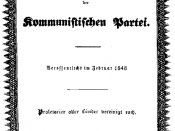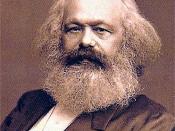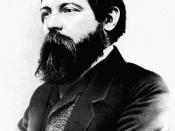In the 19th Century, European society underwent great changes due to industrialization. Manufacturing readily developed and began to take over the traditional economic activities of European countries, agriculture. This caused many European communities economic production to shift from homes and small shops, this in turn led to the creation of many new factories. Due to this major transformation from "agricultural societies" to modern "industrial societies" much of the European populace relocated from small towns or wilds to larger areas of industry. This was extremely influential in the creation and expansion of major cities.
With the help of industrialization, large cities, and massive populations in more dense areas, the disparity between the working class and aristocracy had an ideal setting. John Stuart Mill and Karl Marx were two philosophers who analyzed industrialization and the detrimental conditions which were influenced by it. Each had their own perspective, very distinctive perspective, on the best way to improve society.
Although Mill and Marx differed on many issues, they were rather clear on their industrialized society's main failing; the fact that the lower class, "proletarians," was being constantly exploited by the upper class, "bourgeoisie."
From Britain, philosopher and economist John Stuart Mill produced many articulate and well-structured critiques throughout the 19th century. It would be quite frustrating for one to evaluate Mill's works and attempt to classify his philosophical disposition. Although John Stuart Mill's writings were quite logical and intelligible, it can be seen that his views underwent significant changes throughout his life. Mill's father, an unswerving utilitarian, was very strict in his discipline when raising Mill. This may explain why most of Mill's earlier work had a particularly utilitarian tone to it. Mill shows no uncertainties in his essay on Utilitarianism where he believes:
Actions are right in proportion as they tend to promote...


